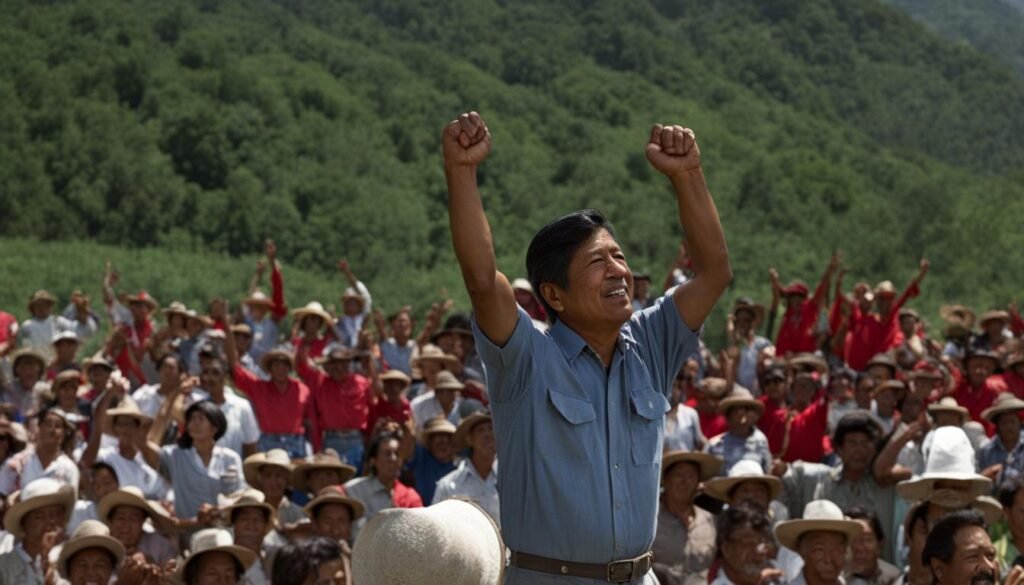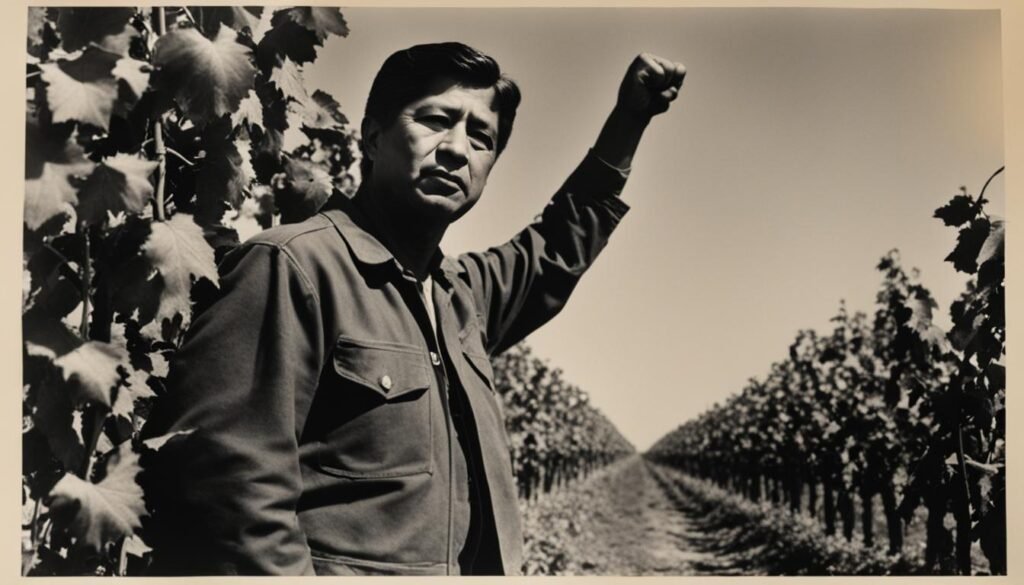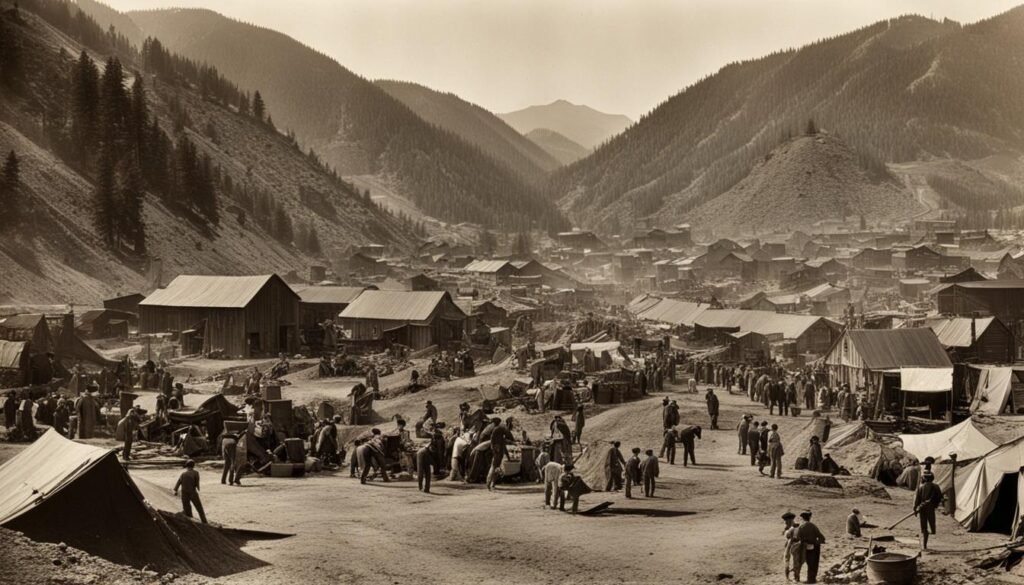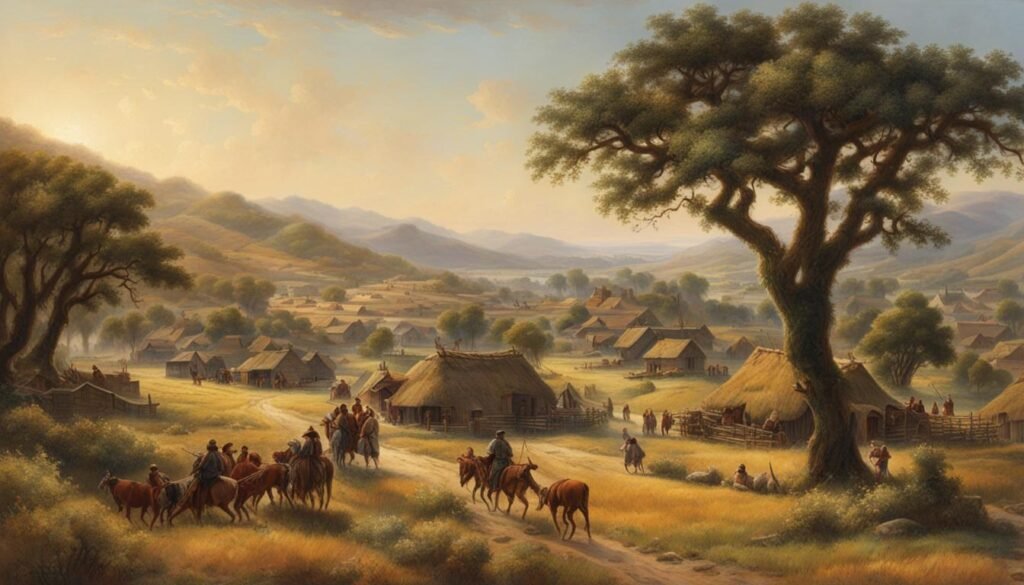Greetings, fellow readers! Today, I want to delve into the inspiring life and enduring legacy of Cesar Chavez, a true champion of civil rights. Born in 1927 in Arizona, Chavez dedicated his life to fighting for the rights of farm workers, leaving an indelible mark on the civil rights movement in America.
Living through the Great Depression and witnessing firsthand the harsh conditions and exploitation faced by migrant workers in California, Chavez was compelled to take action. In 1962, he co-founded the National Farm Workers Association, which later became the renowned United Farm Workers (UFW). Through strikes, boycotts, and nonviolent protests, Chavez and the UFW shed light on the plight of farm workers and advocated for better wages, improved working conditions, and labor protections.
Chavez’s relentless dedication and unwavering commitment inspired generations of activists and brought about profound change for farm workers across the nation. His accomplishments have left an indelible mark on the civil rights landscape.
Key Takeaways:
- Cesar Chavez was a prominent civil rights activist and labor leader.
- He co-founded the United Farm Workers, advocating for the rights of farm workers.
- Through strikes and boycotts, Chavez and the UFW brought attention to the struggles faced by farm workers.
- Chavez’s work inspired other social justice movements and demonstrated the power of collective action.
- His legacy continues to inspire activists fighting for labor rights and social justice today.
Early Life and Activism
Cesar Chavez, a prominent civil rights activist, was born in Yuma, Arizona, on March 31, 1927. His family relocated to California during his childhood, joining the ranks of migrant farm workers. This firsthand experience exposed Chavez to the harsh realities of the agricultural labor system, where he witnessed exploitative conditions and meager wages endured by farm workers.
Determined to improve the lives of these workers, Chavez embarked on a path of activism. During the 1950s, he actively engaged with community organizations, focusing on empowering Mexican-American communities and addressing their concerns. Driven by his passion for justice, Chavez founded the United Farm Workers union, aiming to fight for fair treatment and wages demanded by farm workers.
Chavez’s leadership was marked by his unwavering commitment to the cause. As a labor organizer, he orchestrated numerous strikes, boycotts, and protests that drew attention to the struggles faced by farm workers. Through his advocacy, he shed light on the injustices prevailing in the agricultural industry.
To fully understand the impact of Chavez’s activism, it is essential to recognize the depth of his dedication and his occupation as a labor organizer. His profound influence on the civil rights movement and his pivotal role in defending the rights of farm workers prove that Cesar Chavez was, and remains, an iconic figure whose legacy continues to inspire social change.
Achievements and Legacy
Cesar Chavez’s contributions to the labor movement and civil rights are widely recognized. His relentless efforts in organizing farm workers, advocating for their rights, and improving their working conditions have left a lasting impact.
One of Chavez’s most notable accomplishments was leading the successful Delano Grape Strike from 1965 to 1970. This strike, which involved thousands of farm workers, aimed to address the low wages and poor working conditions in the agriculture industry. Through collective action and nonviolent protests, Chavez and the United Farm Workers (UFW) brought national attention to the struggles faced by farm workers and effectively negotiated a groundbreaking collective bargaining agreement with growers.
The Delano Grape Strike and the subsequent boycotts not only improved the lives of farm workers but also led to important labor reforms. These actions highlighted the need for fair treatment, better wages, and improved labor protections for all workers, regardless of their profession. Chavez’s leadership and commitment to nonviolent protest continue to inspire activists fighting for labor rights, civil rights, and social justice today.
Chavez’s legacy extends beyond his accomplishments in the labor movement. He championed civil rights and stood up against injustices faced by marginalized communities. His dedication to equality and fairness resonates with people from all walks of life, making him an enduring figure in American history.

Chavez’s impact on society cannot be overstated. His unwavering commitment to social change and his ability to mobilize people through peaceful means continue to inspire generations. Today, his name is synonymous with civil rights and justice.
- Organizing farm workers and leading the Delano Grape Strike
- Advocating for fair treatment, better wages, and improved labor protections
- Inspiring other social justice movements through nonviolent protest
- Leaving a long-lasting legacy in the fight for labor rights and civil rights
Cesar Chavez’s accomplishments and his dedication to social justice have made him famous worldwide. His tireless efforts in the labor movement and civil rights have paved the way for a more equitable society. As we reflect on his achievements, we are reminded of the power of collective action and the importance of standing up for what is right.
Personal Reflections and Criticism
Cesar Chavez’s work and life have sparked diverse interpretations and reflections. Many admire his unwavering dedication to labor rights and civil rights, while others have raised concerns about certain aspects of his leadership and political ideologies. One of the notable features of Chavez’s legacy is his emphasis on nonviolent resistance, which resonates with those who believe in peaceful activism as a catalyst for change.
Chavez’s ability to mobilize farm workers and unite them under the United Farm Workers union is commendable. His leadership and tireless efforts brought attention to the struggles of agricultural laborers, shedding light on their substandard working conditions and meager wages. Through strikes, boycotts, and protests, he fought for the rights and dignity of these workers.
However, it is essential to acknowledge the criticisms and controversies surrounding Chavez’s legacy. Some have accused him and the United Farm Workers union of engaging in sexist practices and divisive anti-immigrant rhetoric. These allegations have sparked debates and discussions about the complexities of his leadership and the intersectionality of the issues he fought for.
It is crucial to contextualize Chavez’s contributions within the broader labor and civil rights movements. He collaborated with fellow leaders, such as Dolores Huerta and Larry Itliong, to advance the cause of farm workers and achieve their shared goals. Chavez’s impact on labor rights and civil rights cannot be overlooked, despite these criticisms and controversies.

Conclusion
Cesar Chavez’s life and work have left an indelible mark on American history. From his early days as a farm worker to his rise as a passionate advocate for labor rights, Chavez’s journey serves as a powerful inspiration to fight for justice and equality. His enduring legacy is defined by his unwavering commitment to nonviolent resistance and his relentless fight for the rights of farm workers.
Chavez’s impact cannot be overstated. His leadership and activism paved the way for significant advancements in the labor movement. By organizing strikes, boycotts, and protests, he brought widespread attention to the hardships faced by farm workers and spearheaded crucial reforms in wages, working conditions, and labor protections.
Despite criticism and challenges, Chavez’s contributions to civil rights and labor rights are undeniable. He galvanized a generation of activists and his legacy continues to inspire those who fight for social justice today. As we reflect on the life of Cesar Chavez, we must acknowledge the achievements of the labor movement he led and the ongoing struggle for a more equitable society.
FAQ
Who was Cesar Chavez?
Cesar Chavez was a prominent civil rights activist and labor leader who dedicated his life to fighting for the rights of farm workers.
What were Cesar Chavez’s accomplishments?
Chavez co-founded the National Farm Workers Association, later known as the United Farm Workers (UFW), and successfully advocated for better wages, working conditions, and labor protections for farm workers.
What is Cesar Chavez known for?
Chavez is known for his leadership in the civil rights movement, particularly in advocating for the rights of farm workers and his commitment to nonviolent protest.
What were some key facts about Cesar Chavez’s life?
Chavez was born in Arizona in 1927, became a migrant worker in California, and experienced firsthand the hardships faced by farm workers. He later became a labor organizer and founded the United Farm Workers union.
Did Cesar Chavez face any criticism or controversy?
Yes, while many admire Chavez’s work, there have been criticisms regarding certain aspects of his leadership and political beliefs, including allegations of sexism and anti-immigrant rhetoric within the UFW.
What is Cesar Chavez’s legacy?
Chavez’s legacy includes his significant contributions to the labor movement and the lasting impact he made on labor rights and civil rights in America. His work continues to inspire activists today.







